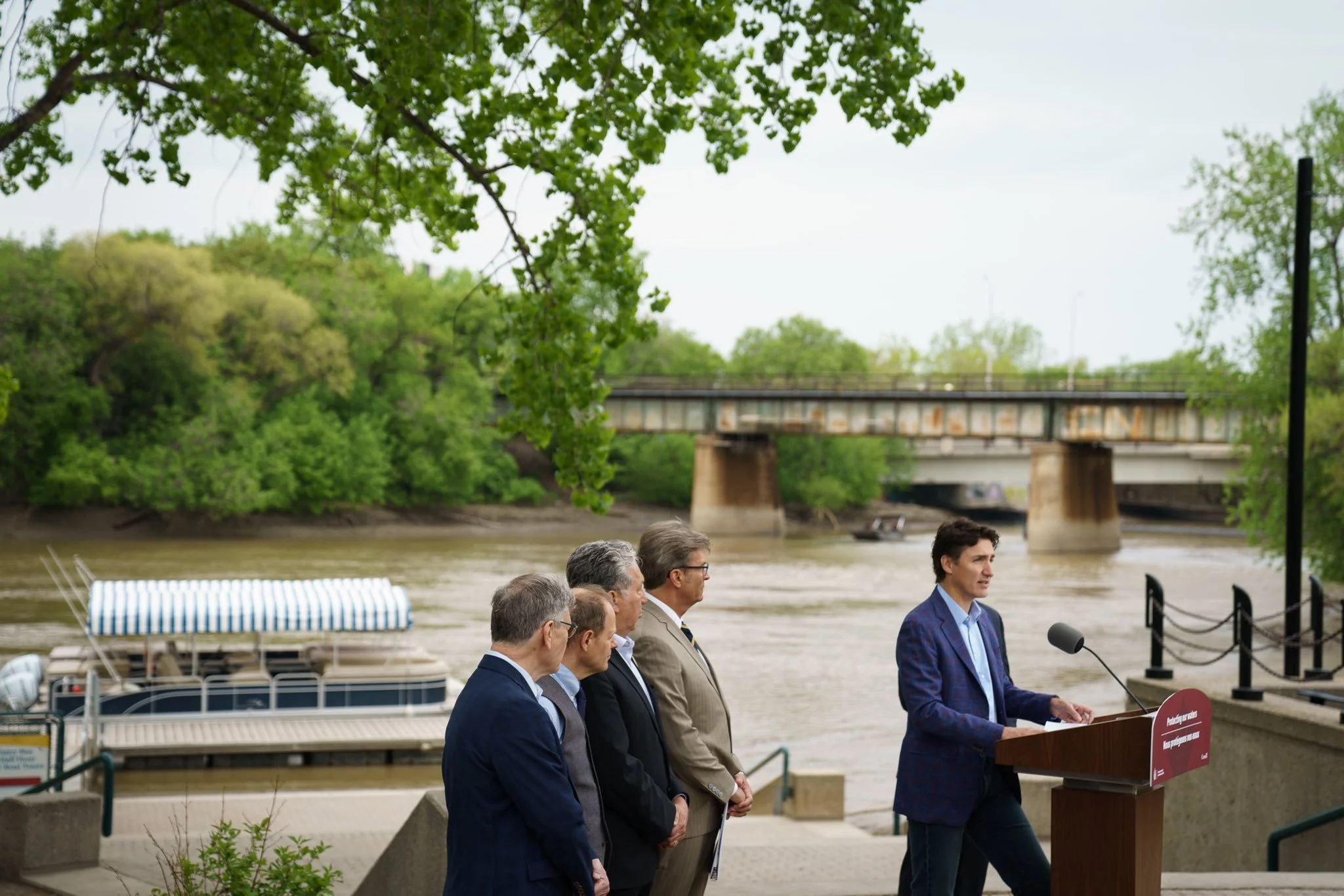Spring is Coming – Where is our Canada Water Agency?
JOHN W. POMEROY, THOMAS S. AXWORTHY AND ROBERT W. SANDFORD
Originally posted in The Globe and Mail in March 2023
Canada is not only warming faster than the rest of the world as climate change heats us up but, in many regions, “wetting up” as well. Where is our urgently needed Canada Water Agency?
The storms of March are walloping Canada hard with massive snow accumulations, from the B.C. coast and southern Alberta to southern Ontario and right into Atlantic Canada.
We all know what comes next: spring snowmelt, river ice breakup, flooding and soil moisture replenishment. The latter will be welcome in the dry Prairies, where hard-pressed farmers and ranchers are hoping to recover from a severe multiyear drought. And the high mountain snowpacks in some Western regions may provide water for irrigation, delay the forest fire season and replenish our dwindling glaciers.
But in much of the country, the deep snow and potential for rain-on-snow storms leads to a greater risk of flooding – something Canadians have quite rightly come to fear in recent years. Our flood damages have grown by a staggering amount in the past two decades, and are projected to keep increasing.
This means that more and more Canadians will be at risk from flooding at home and work, and many will not be able afford or even have the opportunity to purchase insurance as insurance companies recalculate their risks. The more than $9-billion in damages caused by the B.C. floods of 2021 alone shows that we need to change how we approach water management – and to do so quickly.
Fortunately, Ottawa mandated the Minister of Environment and Climate Change to establish a Canada Water Agency to co-ordinate the federal approach to water with the provinces and First Nations. Its goal is to manage water co-operatively, address effects of climate change and supply better information, supported by a $1-billion Freshwater Action Plan. The agency was promised in the 2022 budget – and also during Parliamentary debates – as something that would happen last year.
Wait. It’s 2023!
We cannot wait any more. Canada has a particularly fractured approach to water management that is failing with every flood, drought, harmful algae bloom and drinking water advisory. It is fractured between federal departments and programs, and then again between federal and provincial jurisdictions. This complexity often frustrates the efforts of municipalities and First Nations that have to implement policies and deliver services.
How can a water crisis happen in the country with one-fifth of the world’s freshwater? There are several reasons. One is that Canada is not only warming faster than the rest of the world as climate change heats us up but, in many regions, “wetting up” as well. Our storms are becoming larger, longer and more frequent, and our floods are happening in ways that challenge the standard operating procedures in emergency management that we have followed for so long.
The Canada Water Agency needs to happen now – and it needs to be a solutions-focused, forward-looking and co-operative body, with an eye to water sustainability for all Canadians.
We must take a science-informed approach supported by improved observations and predications of water supply and quality – after all, we cannot manage what we do not measure. We have to integrate management of our many transboundary river basins. And we should welcome Indigenous communities into the overall water management process, so that we can learn from their long custodianship and bring their perspective into the search for solutions that will provide plentiful, clean water for everyone.
We call on the Prime Minister to fulfill his pledge to create an active, responsible, ambitious Canada Water Agency in time for March 22, World Water Day, so that Canada can stand proud this week at the United Nations 2023 Water Conference and share proof that we are adapting to climate change, the greatest threat to humanity of this century. This will show the world that Canada, which used to be a leader on water issues, is not only back, but ahead of the pack and moving forward, working to address the water crisis in our own backyard – and to provide global solutions that the world needs.
Professor John Pomeroy is Canada Research Chair in Water Resources and Climate Change, UNESCO Chair in Mountain Water Sustainability, Distinguished Professor of Geography at the University of Saskatchewan, and director of Global Water Futures.
Bob Sandford is a Global Water Futures Fellow at the United Nations University Institute for Water, Environment and Health and the author of more than 20 books on the effects of climate on water.
Thomas S. Axworthy is Public Policy Chair at Massey College, University of Toronto, and was a principal secretary to Prime Minister Pierre Trudeau

